Men in Nursing 2023
Men in Nursing 2023
Answering the call with passion and purpose
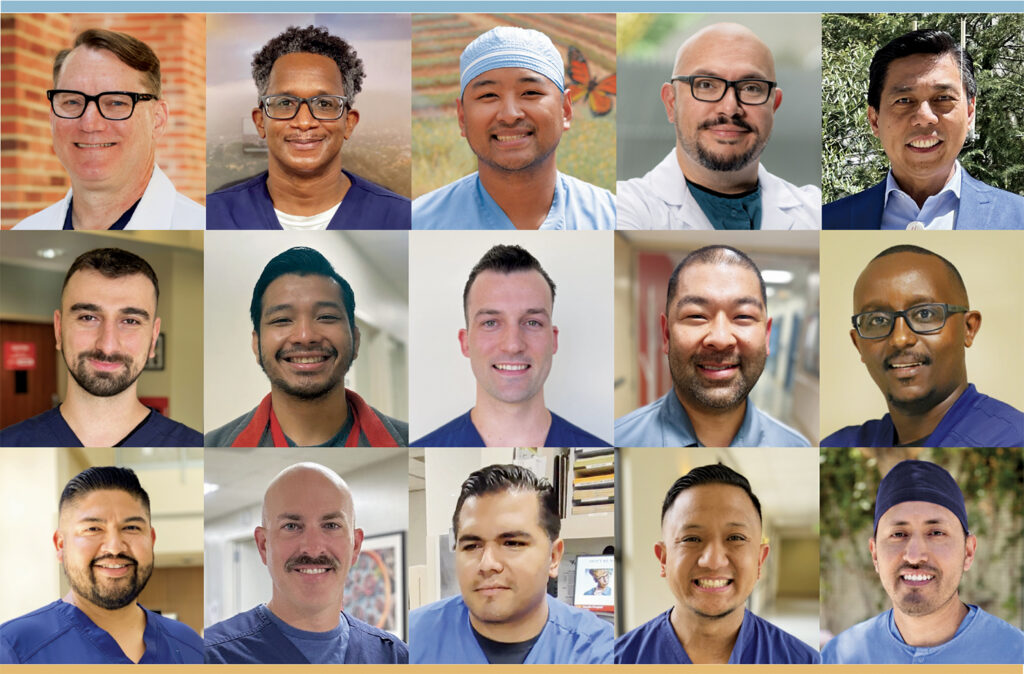
Working Nurse talked to 15 nurses at local hospitals about their specialties, their most memorable patient encounters, and how their practice has changed in the last five years, and more.
They also revealed what they do to recharge — from snowboarding to gardening to spending quality time with family — and shared stories of the adorable pets that bring them joy. Please visit the digital flip magazine to see photos of the nurses enjoying their hobbies and pastimes, and snapshots of their cats, dogs, and parakeets.
In a world where caregiving knows no gender, these nurses bring their skills and unique perspective to the work.
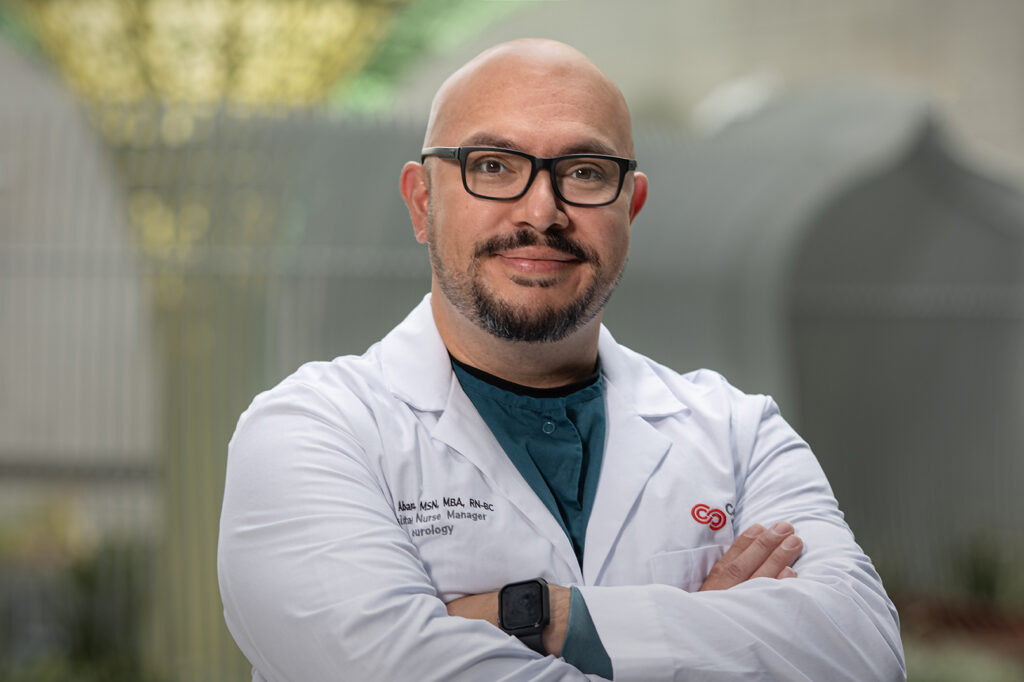
Oscar Abarca Jr., RN-BC, MSN, MBA, NE-BC, CMSRN
Asst. Nurse Manager, Neurology Medical/PCU
Cedars-Sinai, Los Angeles
What do you love about your specialty?
We learn early how to cope with altered, combative patients, and how to finesse patients to relax without going straight to meds or restraints. In neurology, the most timid and apprehensive nurse becomes the first to help with patients who are crashing or acting out.
Share a memorable patient anecdote.
As a new grad, I had a patient who was getting married in a month. His prognosis took a turn for the worse, and he was likely to pass within a few days. I connected with the patient and fiancée on a personal level, and I knew I had to do something for their situation.
With the help of the day and night shifts, we arranged for the wedding ceremony to be conducted in a patient room over FaceTime, with an out-of-state friend of the couple’s officiating virtually. We raided the hospital giftshop for balloons and flowers. Sadly, the patient expired shortly afterward, but that experience showed me that a nurse who listens and cares can move mountains to positively impact a patient’s life (and death).
How has your practice changed in the past five years?
In the past five years, the DNP degree has gained greater acceptance, resulting in greater nursing presence in research, policy advocacy, and patient safety initiatives. I’m currently working on my DNP, which will equip me with a higher level of clinical expertise to effectively lead and find innovative solutions to healthcare disparities.
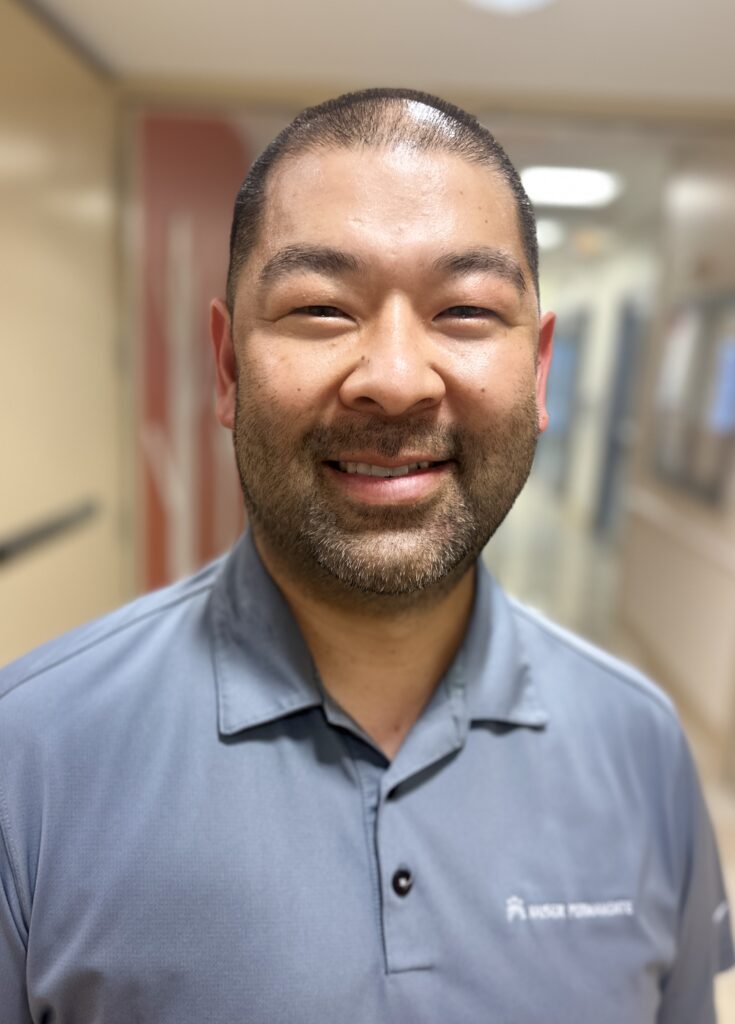 Aaron P. Akamine, RN, BSN
Aaron P. Akamine, RN, BSN
Staff Educator, Pediatrics/PICU/NICU
Kaiser Permanente Los Angeles Medical Center
What do you love about your specialty?
Teaching and the pursuit of new knowledge are two traits that define my role as a staff educator, which is why I continue to thrive in this position. I love being able to provide that additional layer of support and be a dependable resource for my staff as they care for the most complex patients.
Share a memorable patient anecdote.
I once cared for a teenage patient who had been hospitalized for several months. His condition left him bedbound, and he hadn’t been outside since before hospitalization. One day, we had to wait about 15 minutes before taking him into the MRI suite, and it just so happened that the waiting area had a door to the outside. The care team and the family collectively decided that we could safely venture outside for a few minutes while we waited for the MRI.
Once the sun hit our faces, we were all overcome with emotion. I don’t think there was a dry eye in the group. It was a small gesture that made all the difference in the world for that patient and his family.
How has your practice changed in the past five years?
My team and I have leveraged the evolution and availability of electronic communication platforms and data-sharing to enhance the ways we approach projects and tasks. Staying in contact and maintaining open lines of communication are vital for a successful team.
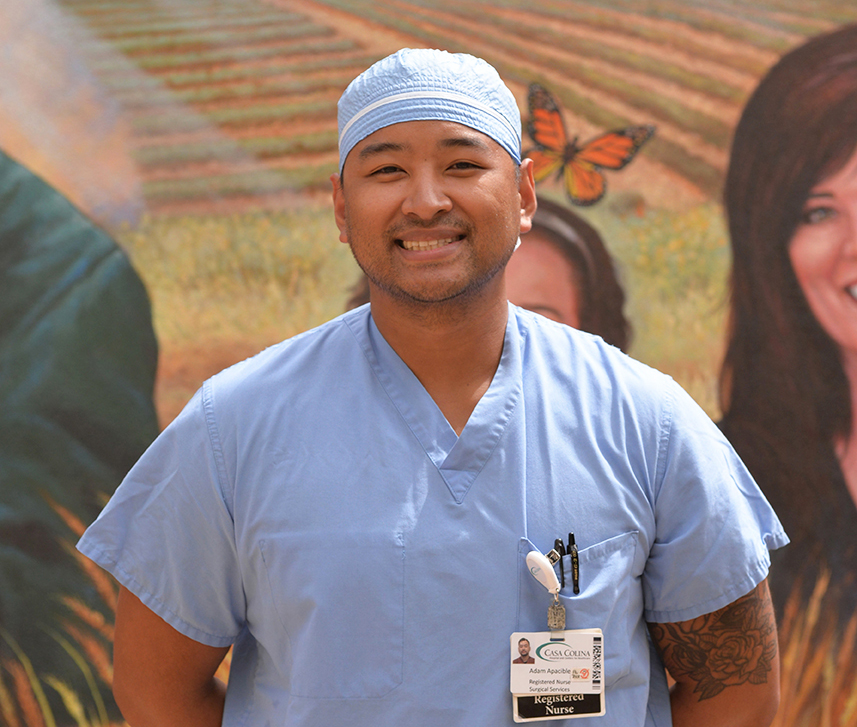
Adam Apacible, RN, BSN
OR Charge Nurse, Surgery
Casa Colina Hospital and Centers for Healthcare, Pomona
What do you love about your specialty?
A surgeon once explained to me that surgery is the act of causing trauma to a patient in order to help them. That threw me for a loop, but it really put things in perspective. My role gives me the opportunity to be a resource for patients during what may be the most terrifying part of their lives.
Share a memorable patient anecdote.
Since becoming a father, I’ve been building up my “Dad-bank” of eye-rolling jokes. One morning, I had a patient who was extremely nervous. I asked if she would like to hear a joke, and her demeanor immediately changed. It turned out she was an elementary school teacher who used jokes to get her students’ attention.
I told her a few jokes while wheeling her into the OR, and she told me some of her own (some of which I’ve added to the bank). When she woke up in the PACU, she immediately asked, “Where’s Adam? I have another one to tell him.” And so she did, until her family arrived to take her home.
How has your practice changed in the past five years?
My collaboration and communication skills have significantly changed since I started working in this field. In our surgery department, we work five eight-hour shifts, Monday through Friday, so we spend a lot of time here. In the beginning, it was intimidating and stressful not knowing anyone, but building rapport and relationships has made it easier to communicate, and even to anticipate what needs to be done for any given procedure.
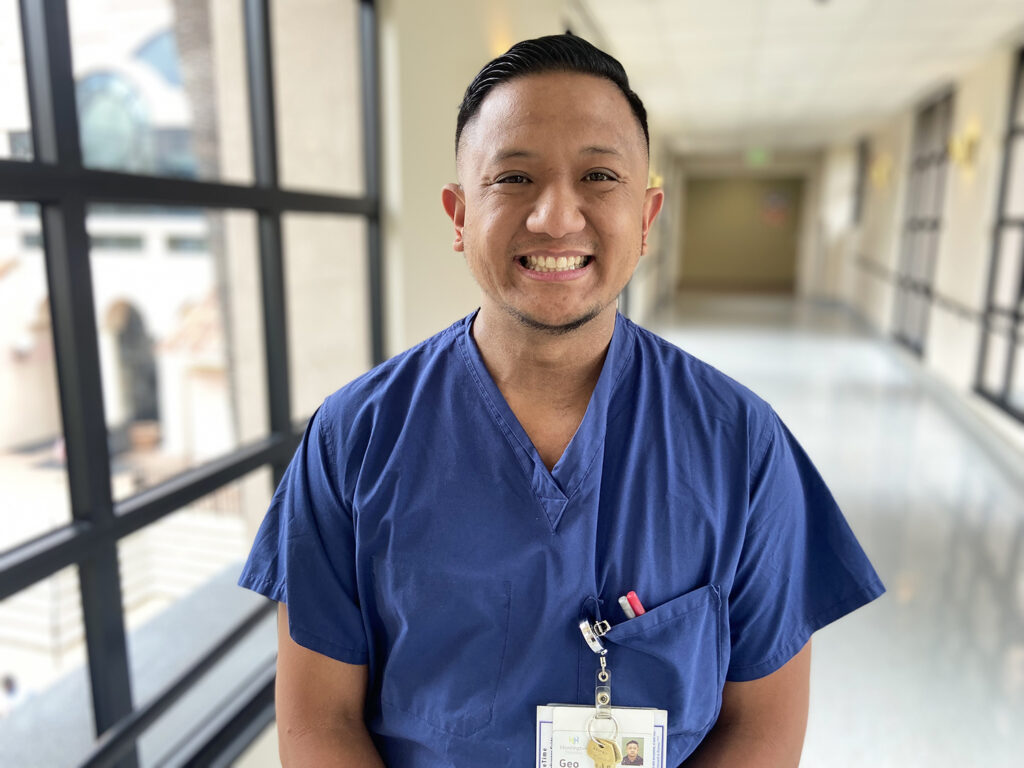
Geo Dulay, RN, MSN
Manager, Surgical Services
Huntington Health, Pasadena
What do you love about your specialty?
In the OR, every day brings new cases, each with a unique set of complexities, ensuring that no two days are ever the same. This constant variety keeps me on my toes and fuels my passion for the profession. Additionally, the surgery department is a place where teamwork truly shines, and where we can really see the impact our work has on patients’ lives.
Share a memorable patient anecdote.
We had a trauma patient who was in critical condition and needed surgery right away. He was understandably scared and anxious. I stood by his side in the OR and was able to console him right up until we put him to sleep. Some time later, I crossed paths with him at a local shopping mall. He told me how thankful he was that I was there for him. That was a special moment.
What is your proudest moment as a nurse?
Two of my proudest moments as a nurse were winning a fulltime scholarship for my MSN and being named OR Nurse of the Year.
How has your practice changed in the past five years?
I am now in a leadership role, so my practice has evolved beyond direct patient care, enabling me to have a broader impact on the OR environment, staff management, quality improvement, and interdisciplinary collaboration.
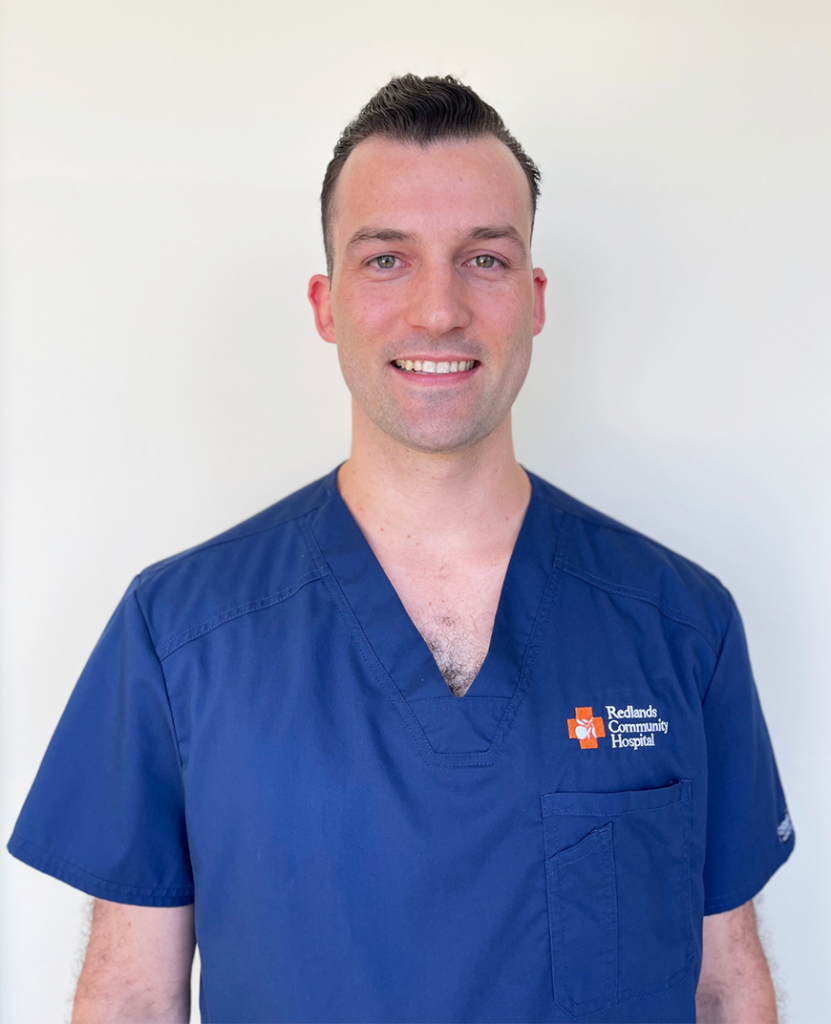 Tyler Eiman, RN, BSN, CCRN
Tyler Eiman, RN, BSN, CCRN
Relief Charge Nurse/Relief House Supervisor, ICU
Redlands Community Hospital
What do you love about your specialty?
I love being a rapid response team nurse. I take pride in being a resource for the entire hospital, and I really enjoy the critical thinking, autonomy, and high-stress moments.
Share a memorable patient anecdote.
When I was in high school, my aunt was diagnosed with a malignant brain tumor. This hardship was a driving factor in my becoming a nurse. Since then, I have taken care of several patients with the same diagnosis. Although the outcomes are poor, it’s fulfilling for me to be able to care for these patients and their families in such difficult times.
What are your professional goals?
I was recently trained to be a relief house supervisor, and I’m enjoying this new leadership role. It has been eye-opening to see other units’ strengths and struggles. Facilitating bed flow has given me a newfound perspective on my hospital, my peers, and nursing in general.
How has your practice changed in the past five years?
For me, the most significant difference compared to five years ago is my greater competence and confidence. Mistakes are inevitable, but it is important to hold yourself accountable by learning from these mistakes, which makes you a stronger, more competent nurse.
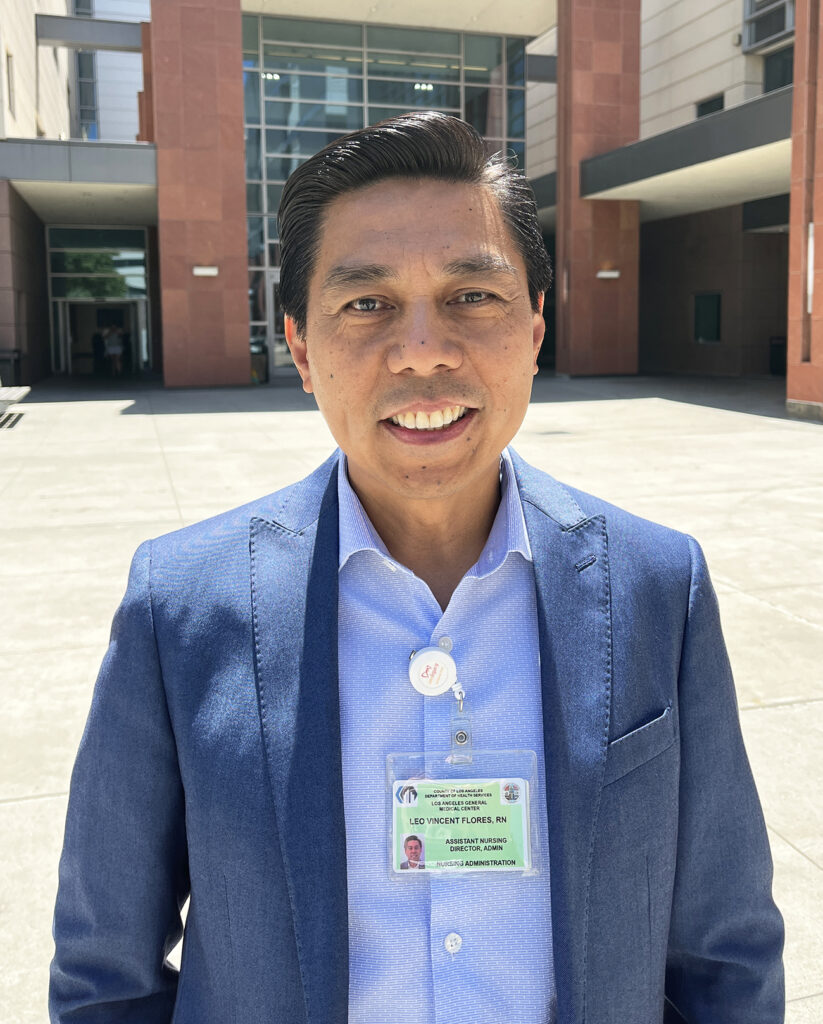 Leo Vincent Flores, RN, BSN
Leo Vincent Flores, RN, BSN
Assistant Nursing Director Los Angeles General Medical Center
L.A. County Department of Health Services
What do you love about your specialty?
What I love about my job is that I’m bridging technology and healthcare, and ultimately making nurses’ jobs easier. The challenges are complex, but finding solutions is intellectually stimulating. The power of technology and data is revolutionary, and I want to be part of that transformation.
Share your proudest moment as a nurse.
One of the proudest moments of my career was the successful implementation of AvaSure TeleSitter remote patient monitoring system in a large healthcare facility. It was a massive undertaking requiring months of planning and work across multiple teams, but seeing the positive impact made all the effort worthwhile. The program improves not only outcomes and patient safety, but also staffing efficiency, by reducing the need for in-person monitoring. This couldn’t come at a better time with today’s nationwide staffing crisis.
How has your practice changed in the past five years?
Over the past five years, nursing informatics has played a significant role in transforming nursing practice — from clinical data dashboards that facilitate evidence-based treatment plans to integrated wireless mobile workstations and handheld devices that streamline workflows and reduce errors. All this benefits patient safety.
Informatics is also reshaping nursing education and workplace onboarding, making it possible to adapt teaching methodologies to suit the learning styles of younger nurses. I believe informatics will continue to have a positive impact on the nursing profession.
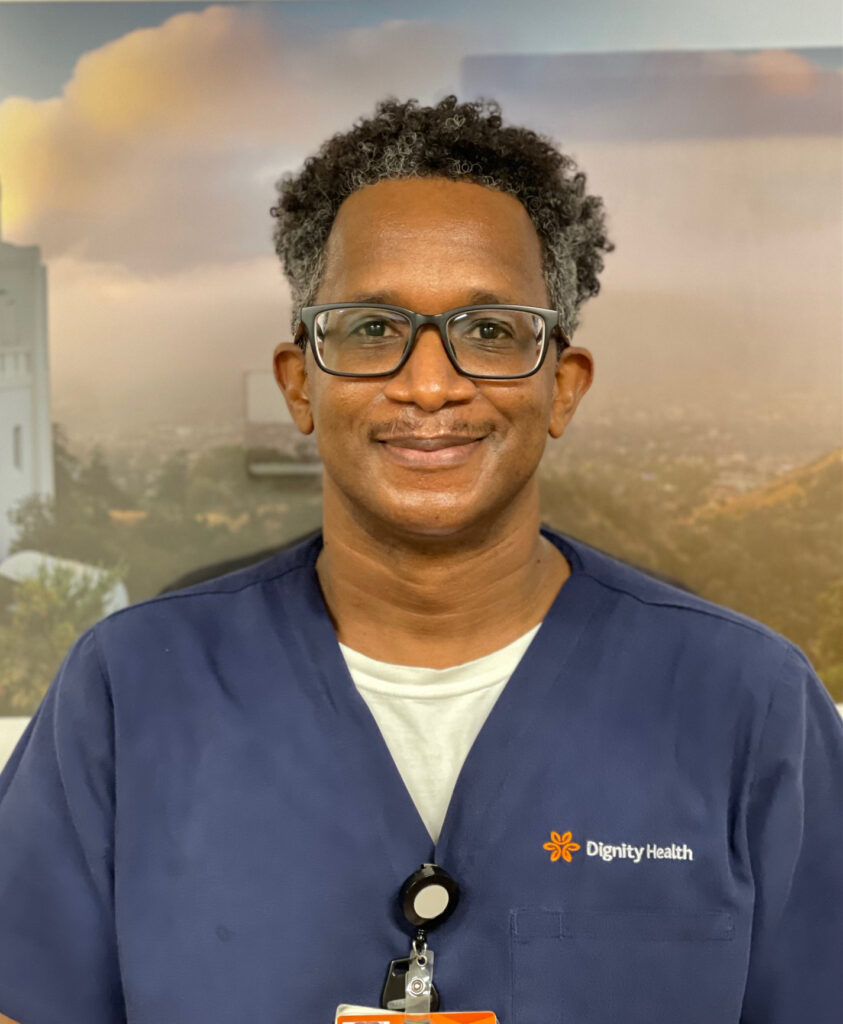 Whitney Jenkins, RN, WCC
Whitney Jenkins, RN, WCC
Medical-Surgical Nurse
California Hospital Medical Center Los Angeles
What do you love about your specialty?
What I love most is the people I work with, since nursing is a “we” profession and not a “me” profession. Countless individuals have supported and taught me, and I try to do the same for others. I still look up to my colleagues and try to imitate the traits I find admirable: how they provide care, their critical thinking, and their passion for nursing.
Share a memorable patient anecdote.
One time, I had to start an IV for a patient whose adult sons were present. Before I started, I asked the patient if it was okay for his sons to stay, and if they were okay with the sight of blood. The patient asked me if I had done this before, and I told him that I had a lot of practice, but he was my first human subject. This caught the patient and his sons off guard, and they all started laughing.
When I had successfully inserted the IV, I assured him that he was actually only my first human subject on that particular shift, and that I’d really performed the procedure many times. However, the laughter released the tension and made undergoing an uncomfortable procedure much easier.
How has your practice changed in the past five years?
Even though I sometimes feel like I only started yesterday, I eventually realized I was one of the more senior nurses on the unit, and a lot of the newer nurses were now looking to me for advice or answers.
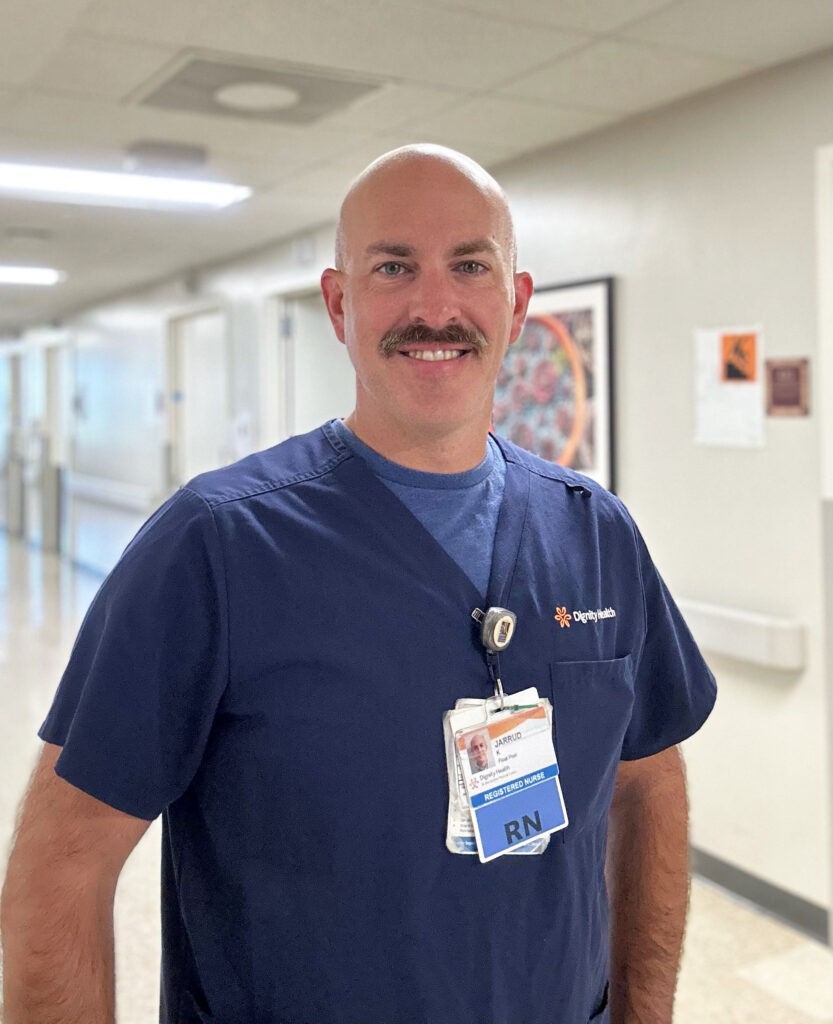 Jarrud Knapp, RN
Jarrud Knapp, RN
Float Pool
St. Bernardine Medical Center, San Bernardino
What do you love about your specialty?
I love being able to provide support in a variety of roles. I’m always humbled and impressed by the specialty nurses who have been so welcoming and taught me so much. My director has also encouraged me to pursue the competencies needed to qualify for the various departments. I look forward to continuing in this capacity.
Share a memorable patient anecdote.
I was caring for a couple in an outpatient setting when I overheard them speaking Tagalog. I mentioned that my wife is Filipina and that I’ve enjoyed learning about the culture, especially the Filipino cuisine. We began talking about our favorite dishes, including a spicy sardine dish that I’ve always enjoyed. It was a great way to connect, and it eased some of their stress.
A few weeks later, the couple returned for a follow-up visit and brought me a bag of those sardines and some calamansi citrus (a type of Philippine lime) that the family had grown in their garden. Their generosity was a powerful example of how we can all care for each other even through small acts.
How has your practice changed in the past five years?
A fantastic improvement has been the advancement in app-based communications, which has helped to facilitate better-quality patient care. I recall the frustration of playing phone tag with medical providers when I needed to relay an update or request clarification of a patient’s care plan. Thanks to technology, this has significantly improved while still remaining HIPAA compliant.
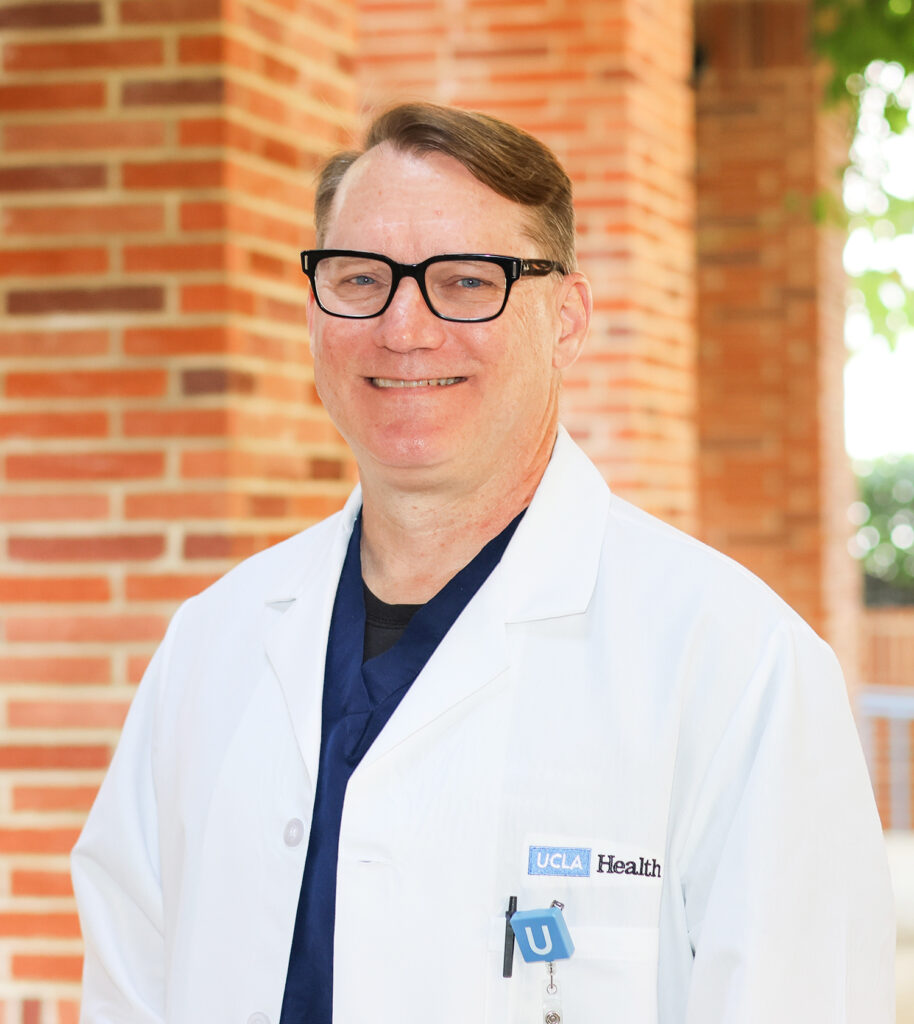 John Kuhn, RN, BSN, MHA
John Kuhn, RN, BSN, MHA
Ambulatory Care Manager, Hemapheresis Unit
UCLA Health/Ronald Reagan Medical Center, Los Angeles
What do you love about your specialty?
Apheresis is an exciting specialty right now. Advancements in cellular therapies allow us to offer lifesaving treatments to patients who have exhausted all other options. Being involved in cutting-edge technology and research is extremely rewarding. When someone asks what I do, I have to be careful not to go off on an extended discussion of my amazing job!
Share a memorable patient anecdote.
Years ago, I treated an elderly woman who’d experienced a massive myocardial infarction. Her prognosis was poor, and her family decided to make her DNR. Her son and daughter wheeled her husband to her bedside, and the gentleman said he couldn’t wait for her to get better so he could bring her home. I looked up at his children, standing behind him, and they shook their heads.
I knelt beside him and gently told him his wife was sick and dying, and that if he had anything he wanted to say to her, he had to do it now. He leaned forward in his wheelchair and took his wife’s hand. He told her how much he had always loved her, how she had always been his best friend, and how much he would miss her. It was a tragically beautiful moment that still brings a tear to my eye.
Tell us about your proudest moment as a nurse.
My proudest moment was receiving my current position as nurse manager. It’s a big responsibility, and a great opportunity to have a broader impact on patient care.
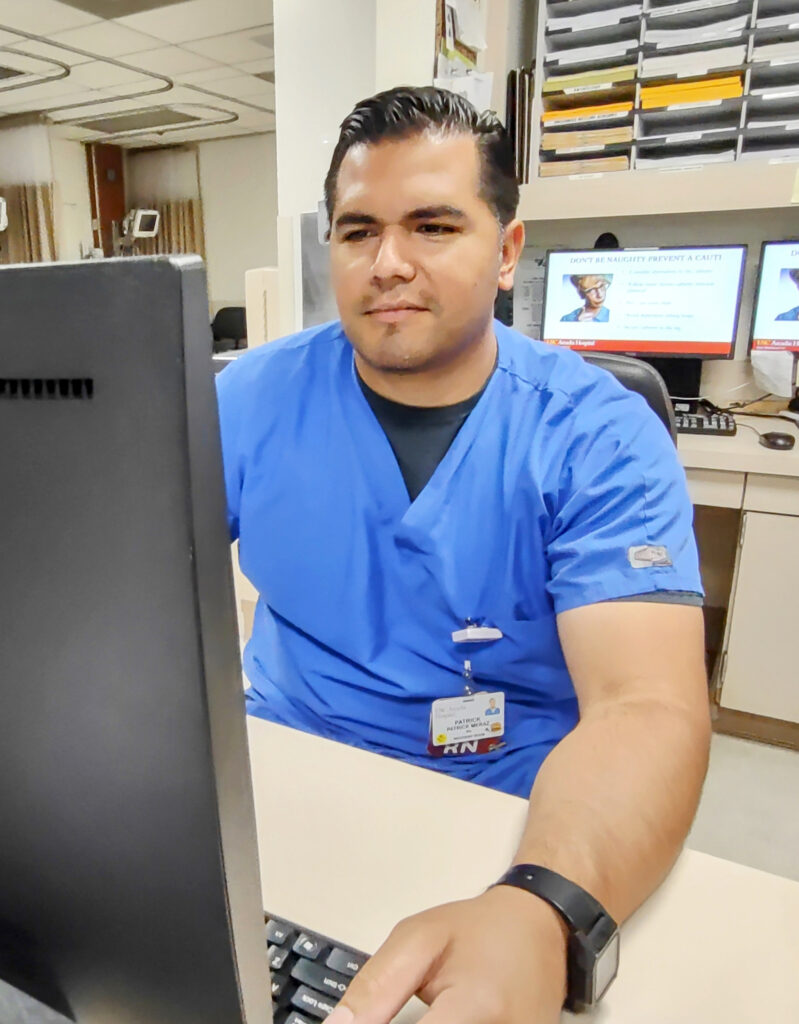 Patrick Meraz, RN
Patrick Meraz, RN
Post-Anesthesia Care Unit (PACU)
USC Arcadia Hospital
What do you love about your specialty?
The PACU can be very unpredictable, but I appreciate how I’ve learned to manage patients as they’re coming out of anesthesia: supporting their breathing, assessing their status, controlling their pain, and trying to put them at ease. It’s basic fundamental nursing care combined with efficient critical thinking and advocacy for patients’ needs.
Share a memorable patient anecdote.
I spent some time working in home health, and there I cared for a man for quite some time who eventually transitioned to hospice care. The family recommended and requested that I continue to be his nurse even through hospice. It felt very meaningful that they trusted me that much, and I appreciated the time and attention I was able to give that family in the last season of their father’s life.
What are your professional goals?
After working in the PACU for 4½ years and getting to know my coworkers, I don’t plan to switch departments any time soon, but there is more I want to learn to be better able to care for our patient population. I’m currently studying to become a certified post anesthesia nurse (CPAN), and plan to sit for the exam next year.
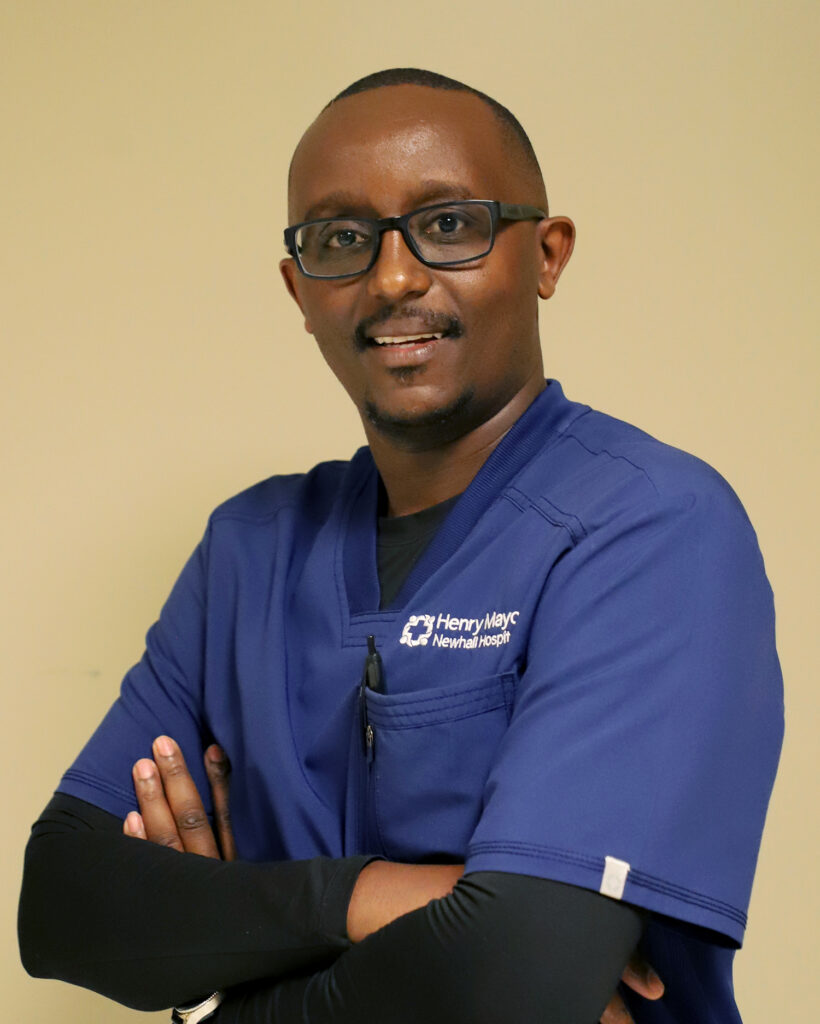 Joseph Mwangi, RN, MSN, PMHNP-BC, Charge Nurse
Joseph Mwangi, RN, MSN, PMHNP-BC, Charge Nurse
Behavioral Health Unit
Henry Mayo Newhall Hospital
What do you love about your specialty?
What I love most is working with the most vulnerable persons in our society today —patients with mental illness or drug addiction who are at the lowest moments in their lives. It brings me joy to restore hope to a severely depressed patient, to offer education to family members of a patient newly diagnosed with bipolar disorder or schizophrenia, or to advocate for patients in the ED so they can receive mental healthcare in a community center rather than being placed on an unnecessary involuntary hold.
What are your professional goals?
As a newly graduated psychiatric-mental health nurse practitioner (PMHNP-BC), my current goal is to get a job as PMHNP in my local community. I want to gain as much knowledge as possible and acquire the skills and hours necessary to be able to practice autonomously as a 104 nurse practitioner under California’s A.B.890 framework. Eventually, I hope to have my own practice, serving vulnerable patients.
How has your practice changed in the past five years?
Five years ago, I was an emergency room nurse, happy and contented with the care we were providing. Then, the COVID-19 pandemic turned everyone’s lives upside down. I started to see more people coming to the ED with mental illness. There are still few referral resources for patients who require emergency care for mental health issues. Before, outpatient appointments were available much sooner than now. There is a healthcare provider shortage, and healthcare is stretched thin for all.
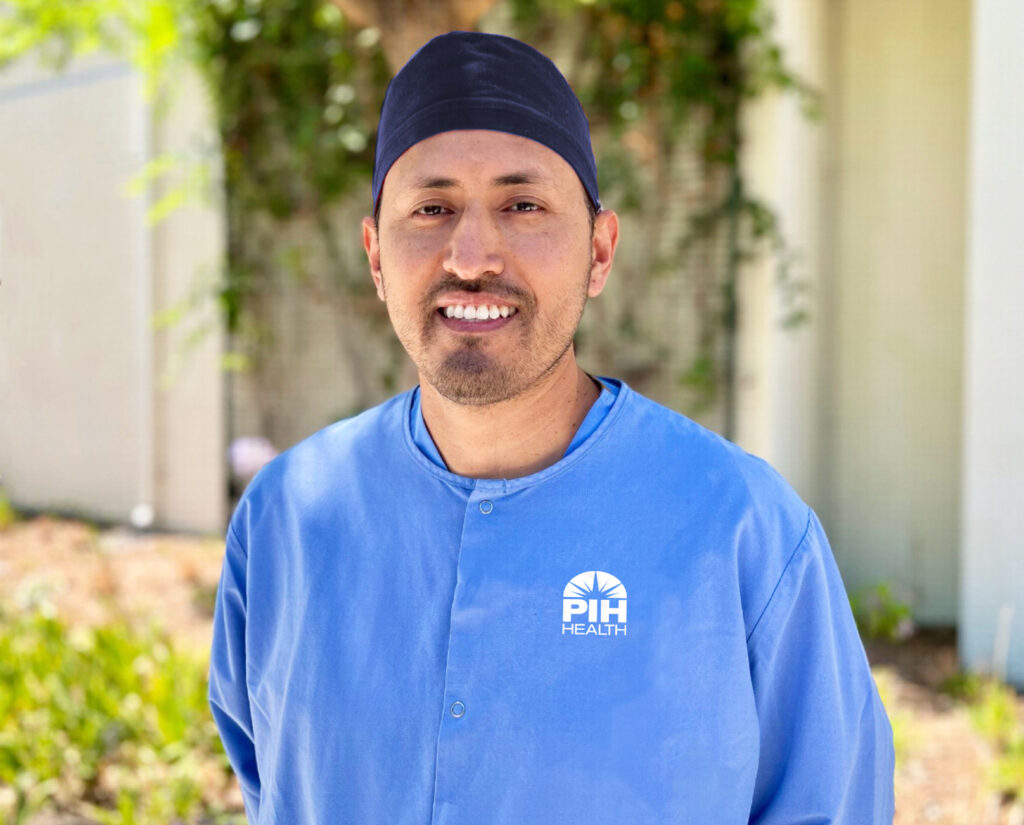 Ceasar Ruiz Perez, RN, MSN, CNOR
Ceasar Ruiz Perez, RN, MSN, CNOR
Perioperative RN/Surgery Charge Nurse
PIH Health Downey Hospital
What do you love about your specialty?
I enjoy having the flexibility to work in different roles. I’ve had the opportunity to work as a charge nurse, circulating nurse, scrub nurse, and preoperative holding area nurse. It makes my job more interesting and expands my skillset.
Share a touching or funny patient anecdote.
At the start of my career, I was very eager, and felt that all patients should have a thorough education in what to expect in the OR. Eventually, I learned that not everyone wanted a full description of what was going to happen during their surgery. I remember one elderly patient who got a frightened look while I was explaining their care plan, and told me, “The less I know, the better.” I said, “You’ll go to sleep, you’ll wake up, and then you’ll go back to your room.” The patient smiled and said, “I like that!” That encounter has stayed with me throughout my nursing career.
Share your proudest moment as a nurse.
I have experienced many proud moments as a nurse, including obtaining my MSN and certified perioperative nurse (CNOR) certification, and becoming a committee chair of a national organization. However, if I were to pick one highlight, it would be when I scrubbed in for my first open heart procedure. I was amazed to see with my own eyes the organ that is responsible for pumping blood throughout the body, and to be a part of a team that contributed to saving someone’s life. These experiences are constant reminders of why I’m so proud to be a nurse.
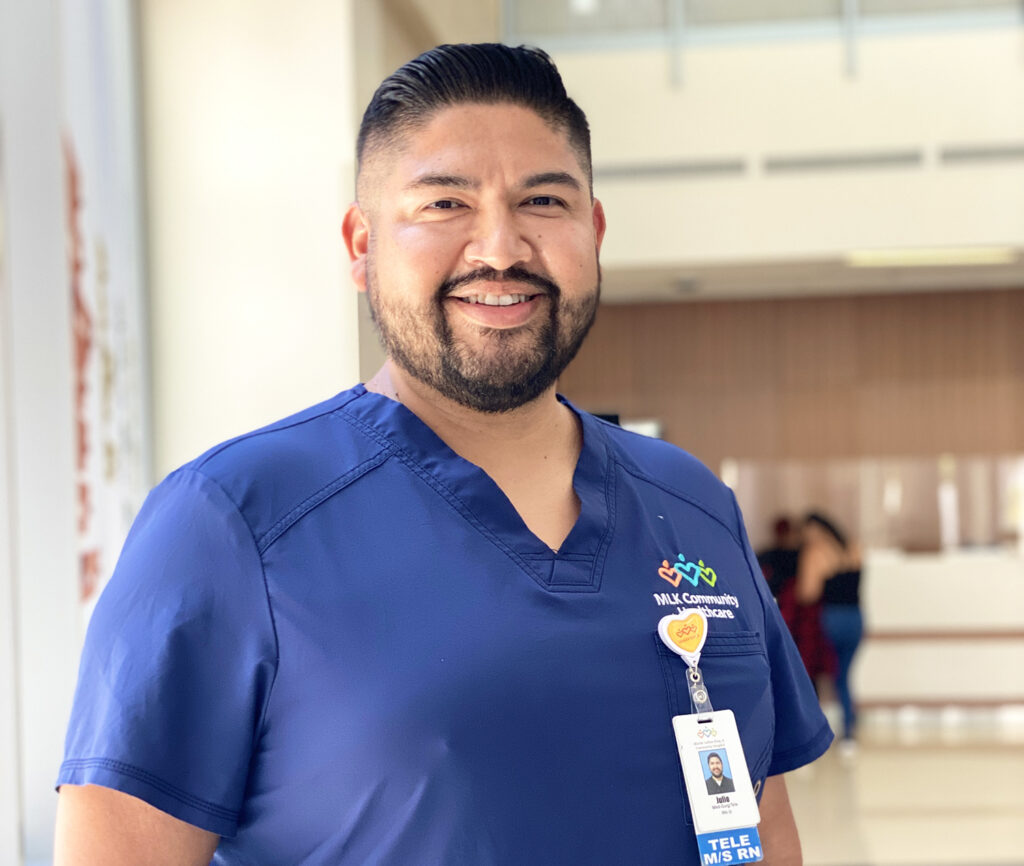 Julio Ramos Gil, RN, BSN
Julio Ramos Gil, RN, BSN
Clinical Unit Supervisor, Telemetry/Med-Surg Unit
Martin Luther King, Jr. Community Healthcare, Los Angeles
What do you love about your specialty?
One thing I really love is how often we’re able to see our patients progress from very sick to feeling better. I’ve had patients with pneumonia or appendicitis who were in bad shape on admission, but felt much better after a few days of treatment. It’s great to see people healing and getting to go home.
Share a memorable patient anecdote.
During my first year as a nurse, I cared for a lady who had diabetes and was about to start insulin shots. She was hesitant and scared because she said she didn’t want to get “addicted” to insulin! I realized she had been getting wrong information from her friends that was affecting her health. I had to provide extensive education before she finally agreed to take her insulin.
A year later, I ran into her at the grocery store. She remembered me and thanked me for convincing her to take her medications. She said she was healthier, and it was because of me. Moments like these warm my heart and remind me why I chose to be a nurse.
What are your professional goals?
I have always had a passion for teaching new nurses. I was fortunate to have had really good clinical instructors who nurtured me to become the nurse I am now. Because of that, it’s been my professional goal to someday become a nurse educator myself. A few months ago, I enrolled in an MSN degree program with an emphasis on education.
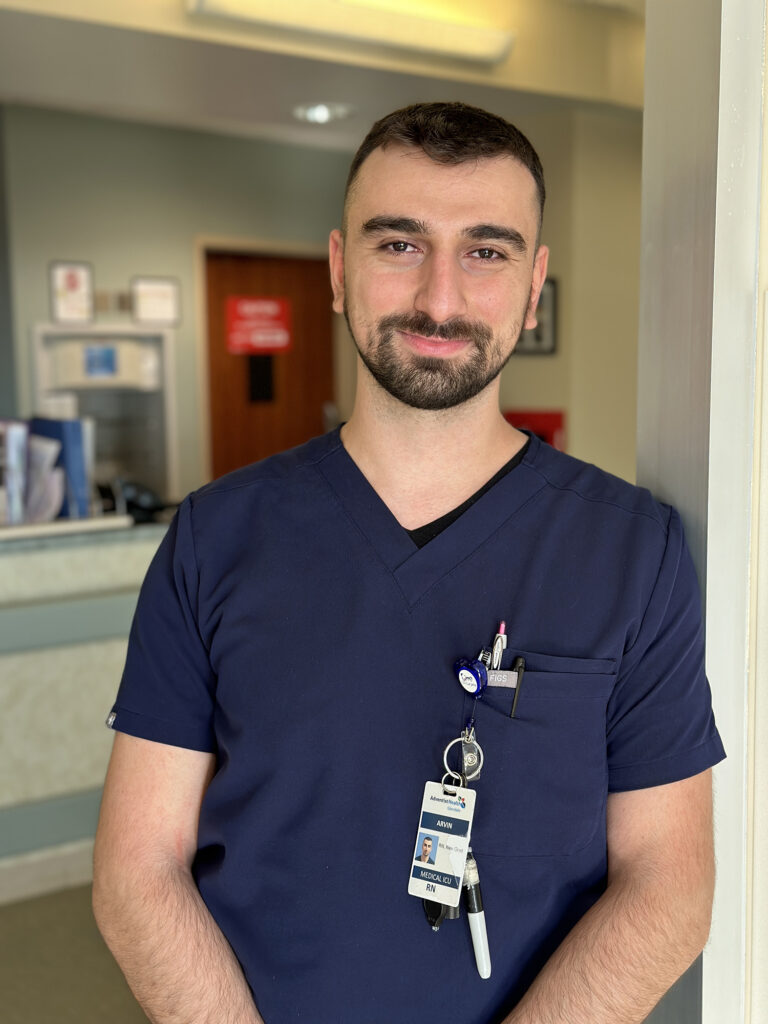 Arvin Sargisian, RN, BSN, CCRN
Arvin Sargisian, RN, BSN, CCRN
Intensive Care Unit
Adventist Health Glendale
What do you love about your specialty?
I love the wide variety of patients I get to engage with in the ICU. We see so many different conditions and situations. Also, in the ICU, you spend more time with each patient and their family, which establishes the foundation for trust and dialogue. You feel like your voice really matters, and you have a direct impact on your patients’ care.
Share a memorable patient anecdote.
I recently worked with a patient recovering from a brain bleed. He endured a fairly serious operation and spent significant time in our ICU. The patient and I share the same cultural background, so I was able to speak and joke with him in his native language. He had a hysterical sense of humor, and we shared many laughs. His life-threatening situation didn’t dampen his spirit. I had a blast getting to know him and his family. It was a genuinely great experience.
How has your practice changed in the past five years?
Five years ago, I was working in the emergency department, which has a completely different focus. In the ED, you have an endless stream of patients, and your job is to get them stabilized and ready to either return home or transition to the next step in their care. In the ICU, you might spend an entire shift with a single patient, so you get to treat the person as a whole, while staying laser-focused on any changes to their condition so you can get ahead of any potential complications.
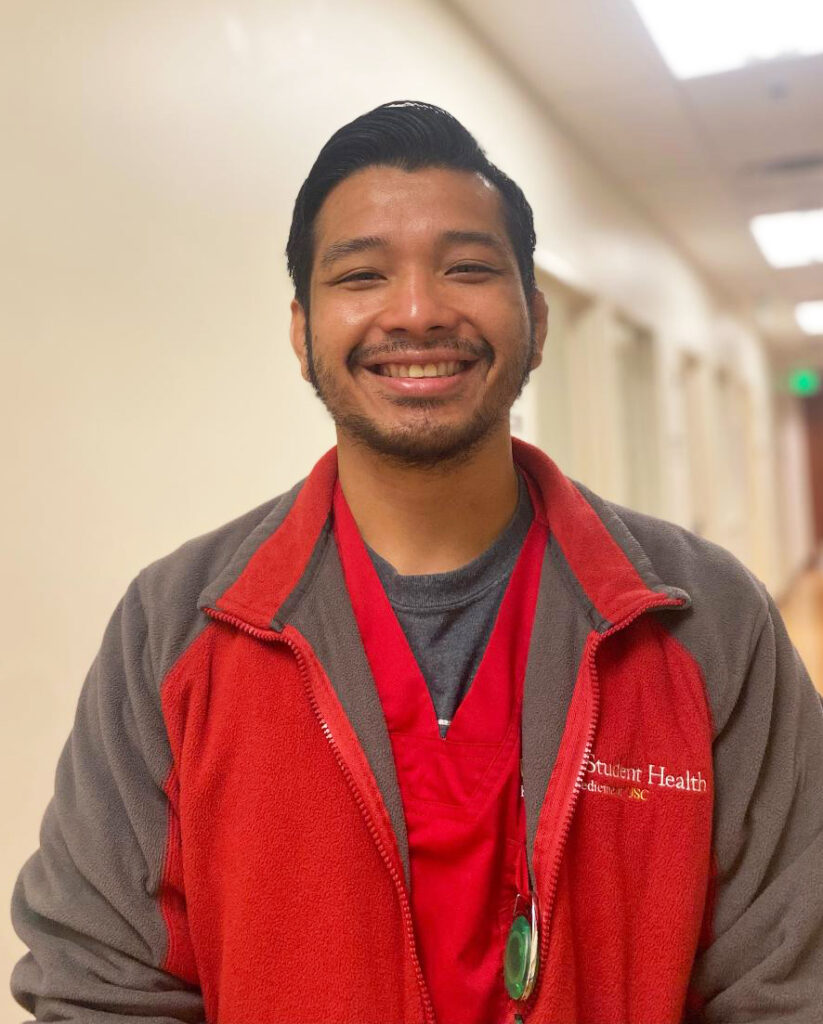 Justin Villegas, RN, MSN Ed., PHN
Justin Villegas, RN, MSN Ed., PHN
Ambulatory Care
Keck Medicine of USC-Engemann Student Health, Los Angeles
What do you love about your specialty?
The student health center is a unique setting with a very diverse patient population. Although the majority are healthy in medical terms, being a fulltime student can take its toll, and caring for students who are navigating healthcare as transitioning adults takes a lot of patience, kindness, and respect.
Another unique aspect is the variety of patients we see every day. We are school nurses on steroids: We treat students with simple cuts or abrasions, but we also have laboratory services, radiology, an immunization/allergy clinic, and outpatient therapy. Monotony is not in our language, and that’s why I love this field.
Share a memorable patient anecdote.
Last semester, we had a student visit the clinic multiple times for an unusual medical condition involving his eye. During the nursing assessment, he mentioned that he had not slept or eaten for days.
In seeking to better understand his condition, I found that he was in a manic state and had expressed suicidal ideation the night before. We transferred the patient to our mental health department for treatment and transfer to a higher level of care. It really showed me the importance of understanding the patient’s perspective by asking the right questions.
What are your professional goals?
My objective for this year is to pursue my ambulatory care nursing board certification (AMB-BC). I believe working in a Magnet facility involves professional development and lifelong learning, which I am doing in my daily routine. Adding the credentials is just a plus.
Please visit the digital flip magazine to see photos of the nurses enjoying their hobbies and pastimes, and snapshots of their cats, dogs, and parakeets.
AARON SEVERSON is the associate editor of Working Nurse.
In this Article: Career Advice, Men in Nursing


